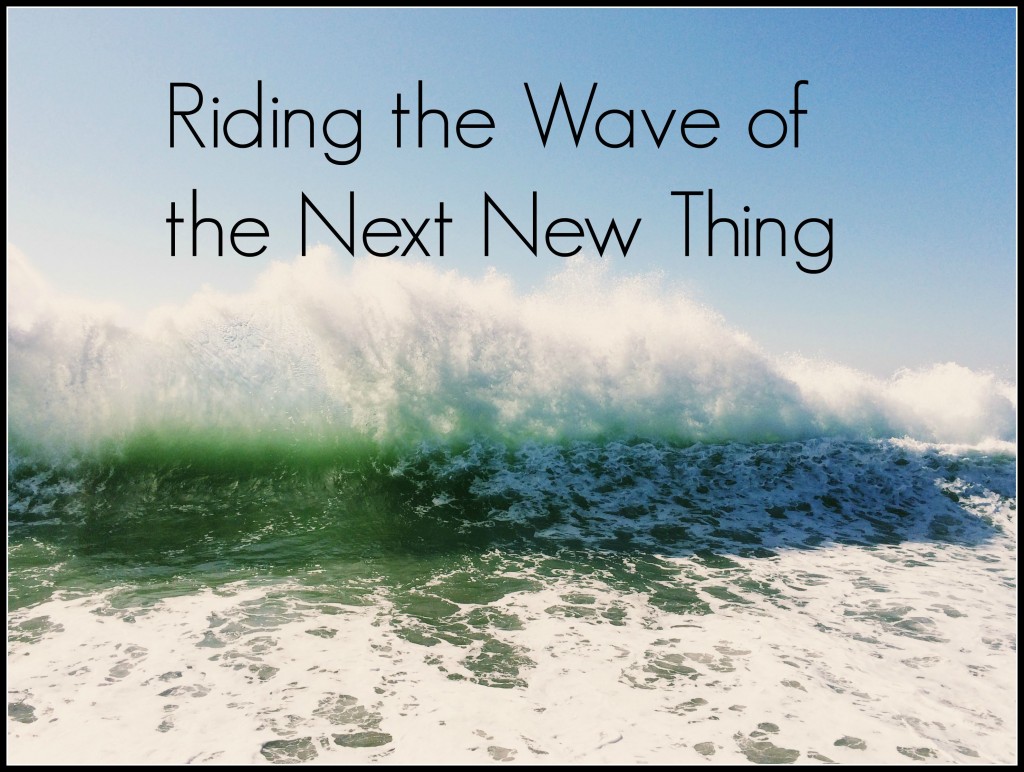Does this sound familiar? A great new weight loss program comes along—“the next new thing.” You haven’t tried it before, which is surprising because you thought you tried everything. Maybe it promises fast weight loss. Maybe it promises to finally get to the root of all of your problems for good this time. Or maybe you are just so frustrated with your weight you will sincerely try anything at this point. So you sign up, buy the shakes, download the app, attend the meetings, do the workout, read the book, eat the food—or whatever the next new thing requires of you. Maybe you pay a little, or maybe you pay a lot. Whatever the case, you ride the wave of the wow factor—that heady rush of promise that new things bring—with good success. The next new thing works.
Until it doesn’t. This is pretty much the common trajectory of every human endeavor to change, whether it is weight loss or anything else. During the wow factor stage, it doesn’t even matter if the next new thing uses evidence-based practices or is medically sound. People have initially lost weight eating cabbage soup, or by putting acupressure balls behind their ears just as easily as they have by more traditional methods. It wasn’t the program or product that caused the initial short-term success, it was the wow factor. It was a sudden, temporary surge in motivation and hope that can be attributed to the novelty of the approach. If you rely on the ephemeral wow factor you are in for a very frustrating ride that may undermine your confidence in your ability to change behavior.
That heady surge in motivation (I refer to as “romance”) wears off. The tide of your accumulated habits (which have been years in the making) is no match for fledgling new habits learned during the wow factor stage. So what to do? First, don’t let this phenomenon bring down your confidence in your abilities. Wow factors are part of human nature—we get excited, hopeful, and motivated at the beginning of anything. You can learn to work with them successfully. Success is possible if you consciously factor the wow factor into your process. What makes the wow factor a problem is that we mistake it for something real, when it is just a feeling. With mindfulness, you become aware of this temporary initial romance, perhaps acknowledge it “Hi wow factor, I’m going to enjoy you while I can, but I know you will be gone soon…” And then you make a plan and a commitment for when the wow factor dissipates. Calling out the wow factor for what it is allows you to take full responsibility for your success, and not rely on fleeting phenomena.
Here’s where mindful awareness can really help you as you learn from your past attempts: you will need to discern whether you lost steam because the wow factor wore off, or if the next new thing was simply not a good fit for you. When you are in the midst of the wow factor, it is hard to determine this. But after, when you take stock, ask yourself why the next new thing did not work and see what you learn about yourself. Be honest with yourself, perhaps discuss with a trusted friend/s to get fresh perspectives. Many people fall on the extremes of the spectrum here: they either take all the blame themselves (I fail at every attempt…something must be wrong with me…I lack motivation….etc.” or they place all the blame on the next new thing (that diet didn’t work…that program just wasn’t good enough…etc.). The truth rarely lies in the extremes. A clear-headed estimation of your personal responsibility vs. the type of weight loss plan that is right for you will help you succeed going forward.
And then going forward, whether you are losing weight on your own, or involved in some sort of program, you will have to do two things to get past the wow factor.
- Commit to process-oriented thinking rather than goal-oriented thinking. This one is a “Steve-ism” as he says this just about every group! If your focus is on the goal, you will achieve the goal but then lacking a sound process, you run the risk of bouncing back and forth. If your focus is on coming up with a sound personal process, you will succeed long term. A goal of “I want to lose xx pounds” is incomplete without a process that works for you. The truth is that along the way of losing xx pounds, you will probably take two steps forward and one step back. If the number on the scale is all that matters, motivation will be dependent on that. But if every day you are committed to the process of mindful awareness and mindful living, you have a daily practice no matter what, and motivation can be light and consistent (and sustainable).
- Learn to surf the highs and lows. Two useful concepts from Zen philosophy are impermanence and equanimity. Impermanence means that nothing lasts. The good feelings—wow factors, high motivation, high hopes, etc.– are temporary phenomena. The bad things—the lows, down feelings, dark days, dips in motivation, low self-esteem, etc.—are temporary phenomena. You don’t attach to either. You ride them like a surfer, always knowing that impermanence is the nature of reality. You fully enjoy the good times, but don’t cling to them. You experience the bad times, but don’t wallow in them or think they are permanent. Equanimity means the practice of not letting your peace be at the whim of emotions or experience. It is cultivating an inner sense of “okayness” in the midst of impermanence (that is my personal definition, but feel free to investigate what Buddhist philosophy has to say about it). Both of these concepts can be developed by…you guessed it…a daily mindfulness practice that includes meditation. The basic skill required for this type of “surfing” can be developed by a few minutes of following your breath every day.

